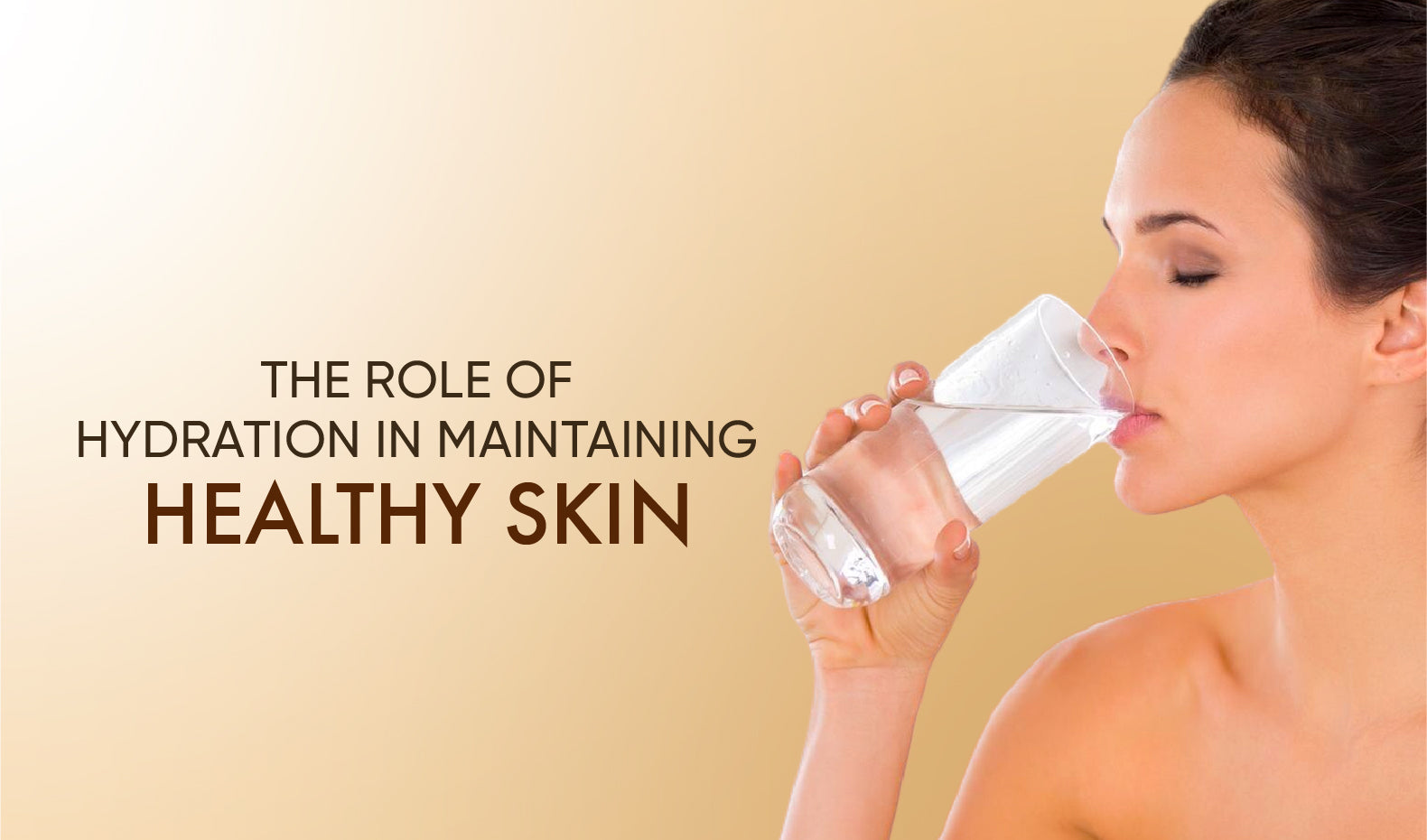The Role of Hydration in Maintaining Healthy Skin
Maintaining healthy skin is a goal for many, and understanding the pivotal role of hydration can significantly contribute to achieving this objective. Hydration, both internal and external, is crucial for skin health. This blog will delve into how hydration affects skin, the benefits it brings, and practical tips for keeping your skin well-hydrated.
Understanding Skin Hydration
Skin, the body's largest organ, acts as a barrier against external factors such as pollutants, bacteria, and UV radiation. The outermost layer of the skin, known as the stratum corneum, is vital for maintaining skin hydration. This layer contains natural moisturizing factors (NMFs) that attract and retain water, ensuring the skin remains supple and resilient.
When the skin's hydration levels are optimal, it functions effectively, providing a smooth texture and a radiant appearance. Conversely, dehydration can lead to a compromised skin barrier, making it susceptible to dryness, flakiness, and irritation.
Benefits of Hydration for Skin Health
- Enhanced Skin Elasticity
Hydrated skin is more elastic and resilient. Adequate hydration ensures that the skin remains flexible, reducing the likelihood of developing fine lines and wrinkles. Well-hydrated skin can bounce back more readily, maintaining a youthful and vibrant appearance.
- Improved Skin Texture
Hydration contributes to a smoother skin texture. When the skin is adequately moisturized, it feels softer and appears more even. Dehydrated skin, on the other hand, can become rough and uneven, accentuating imperfections.
- Stronger Skin Barrier
A well-hydrated skin barrier is more effective at protecting against environmental aggressors. Hydration helps maintain the integrity of the stratum corneum, preventing the penetration of harmful substances and minimizing moisture loss. This reduces the risk of infections, irritations, and other skin conditions.
- Prevention of Dryness and Flakiness
Dry and flaky skin is a common sign of dehydration. Proper hydration prevents these issues by ensuring that the skin retains sufficient moisture. This not only enhances comfort but also improves the overall appearance of the skin.
- Reduced Sensitivity and Irritation
Hydrated skin is less prone to sensitivity and irritation. A well-moisturized skin barrier can better withstand external irritants, reducing the likelihood of redness, itching, and discomfort.
Internal Hydration: Drink Your Way to Healthy Skin
The foundation of healthy skin starts from within. Internal hydration, achieved through adequate water intake, is essential for overall health and skin vitality.
- Water Consumption
Drinking sufficient water is the most straightforward way to ensure internal hydration. Aim for at least eight glasses of water per day, though individual needs may vary based on factors such as activity level, climate, and overall health. Carry a reusable water bottle and set reminders to drink water throughout the day.
- Hydrating Foods
Incorporate hydrating foods into your diet. Fruits and vegetables with high water content, such as cucumbers, watermelon, oranges, and strawberries, can contribute to your overall hydration. These foods also provide essential vitamins and minerals that support skin health.
- Limit Dehydrating Beverages
Certain beverages, like caffeinated drinks and alcohol, can contribute to dehydration. While it’s okay to enjoy these in moderation, balancing them with water and hydrating foods is crucial. Herbal teas and coconut water are excellent alternatives that provide hydration without the dehydrating effects.
External Hydration: Skincare Practices for Optimal Moisture
In addition to internal hydration, external hydration through skincare practices is vital for maintaining healthy skin. This involves using products and adopting routines that enhance the skin's ability to retain moisture.
- Moisturizers
Moisturizers are key to locking in hydration. Choose a moisturizer that suits your skin type:
- Dry Skin: Opt for thicker creams or ointments containing ingredients like hyaluronic acid, glycerin, and ceramides.
- Oily Skin: Use lightweight, non-comedogenic lotions or gels that hydrate without clogging pores.
- Combination Skin: Find a balanced moisturizer that addresses both dry and oily areas.
Apply moisturizer immediately after cleansing to trap moisture within the skin.
- Hydrating Serums
Hydrating serums, particularly those containing hyaluronic acid, can provide an extra layer of moisture. Hyaluronic acid is a powerful humectant that attracts and retains water, plumping the skin and enhancing its texture.
- Gentle Cleansers
Harsh cleansers can strip the skin of its natural oils, leading to dryness and irritation. Opt for gentle, hydrating cleansers that cleanse without compromising the skin barrier. Look for products with soothing ingredients like aloe vera, chamomile, and oat extract.
- Humidifiers
Environmental factors, such as low humidity, can deplete the skin's moisture. Using a humidifier, especially during dry seasons, can help maintain adequate humidity levels in your home, preventing your skin from becoming dry and flaky.
- Avoiding Hot Showers
While hot showers can be relaxing, they can strip the skin of its natural oils, leading to dryness. Opt for lukewarm water and limit shower time to preserve the skin's moisture barrier.
Conclusion
Hydration plays an indispensable role in maintaining healthy skin. Both internal and external hydration are crucial for achieving and sustaining optimal skin health. By drinking enough water, consuming hydrating foods, and adopting a skincare routine that focuses on retaining moisture, you can ensure your skin remains supple, resilient, and radiant.
Remember, the key to healthy skin lies in consistent hydration. Make it a priority, and your skin will thank you with a glowing, youthful appearance.



